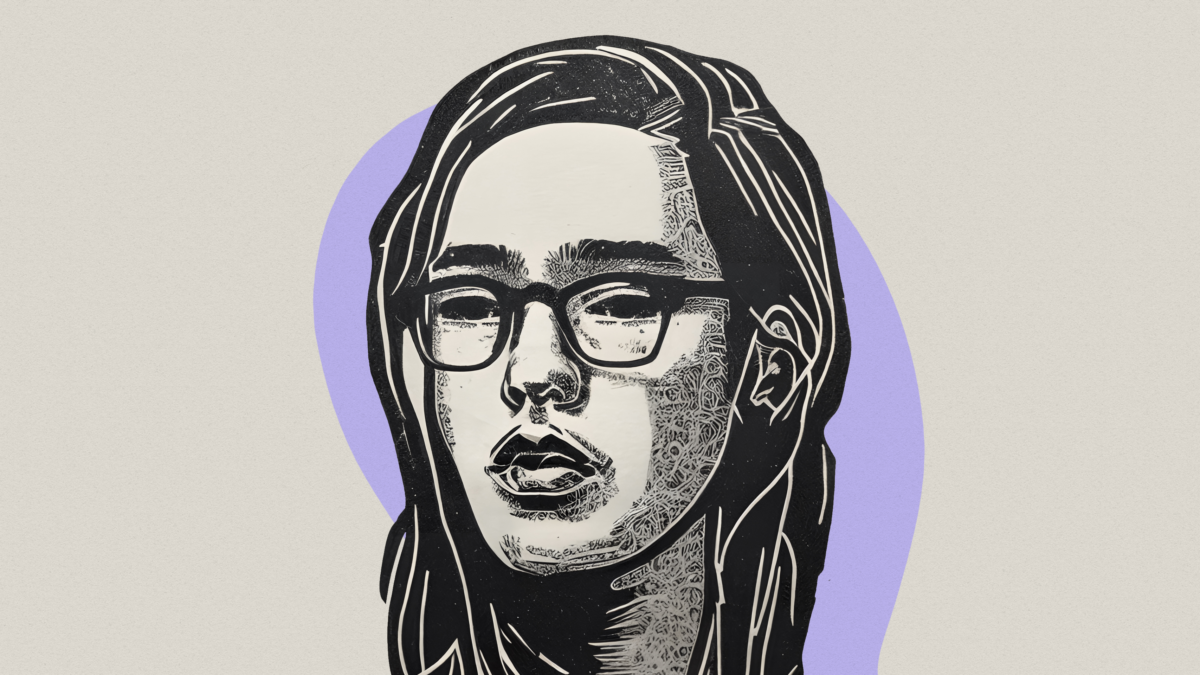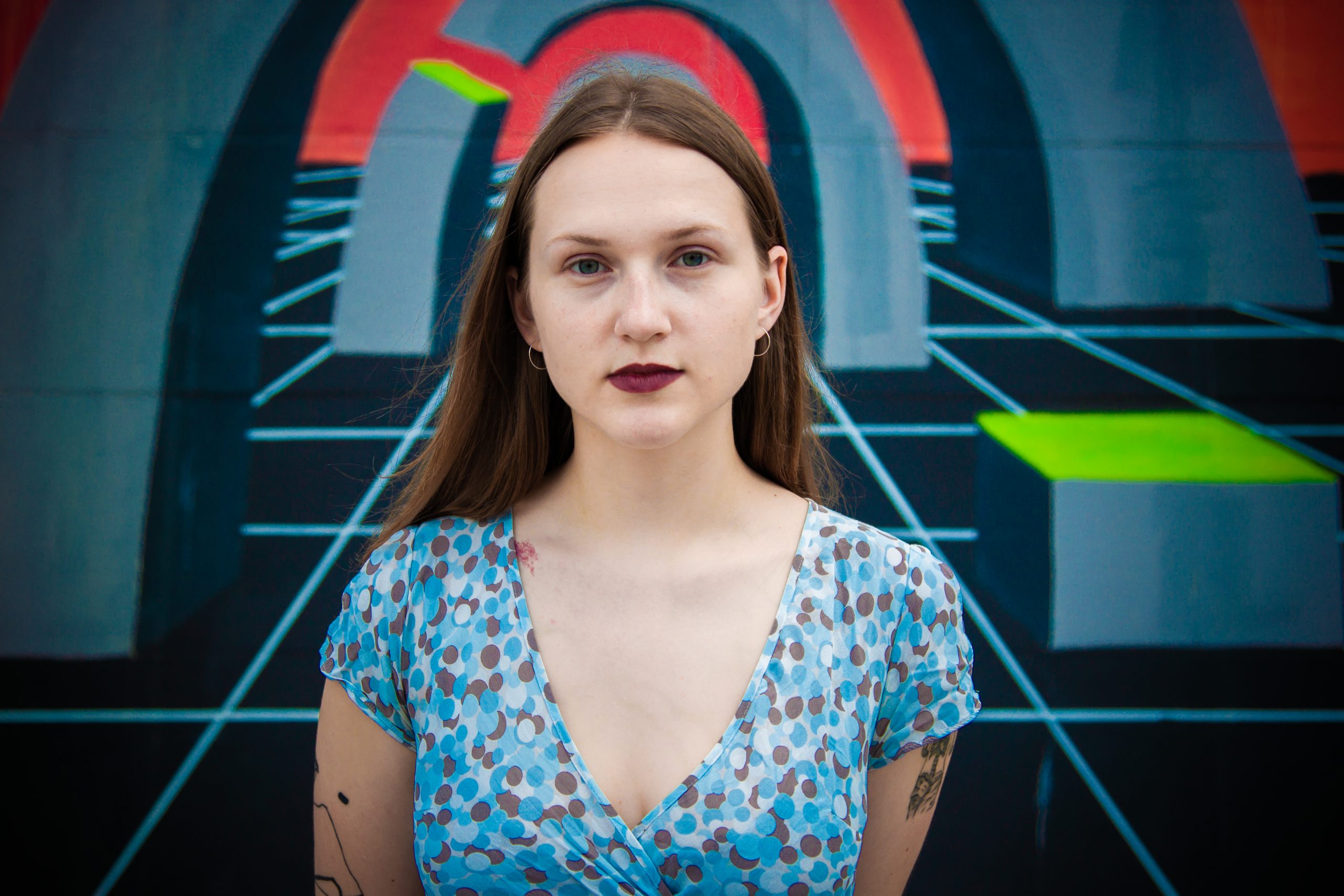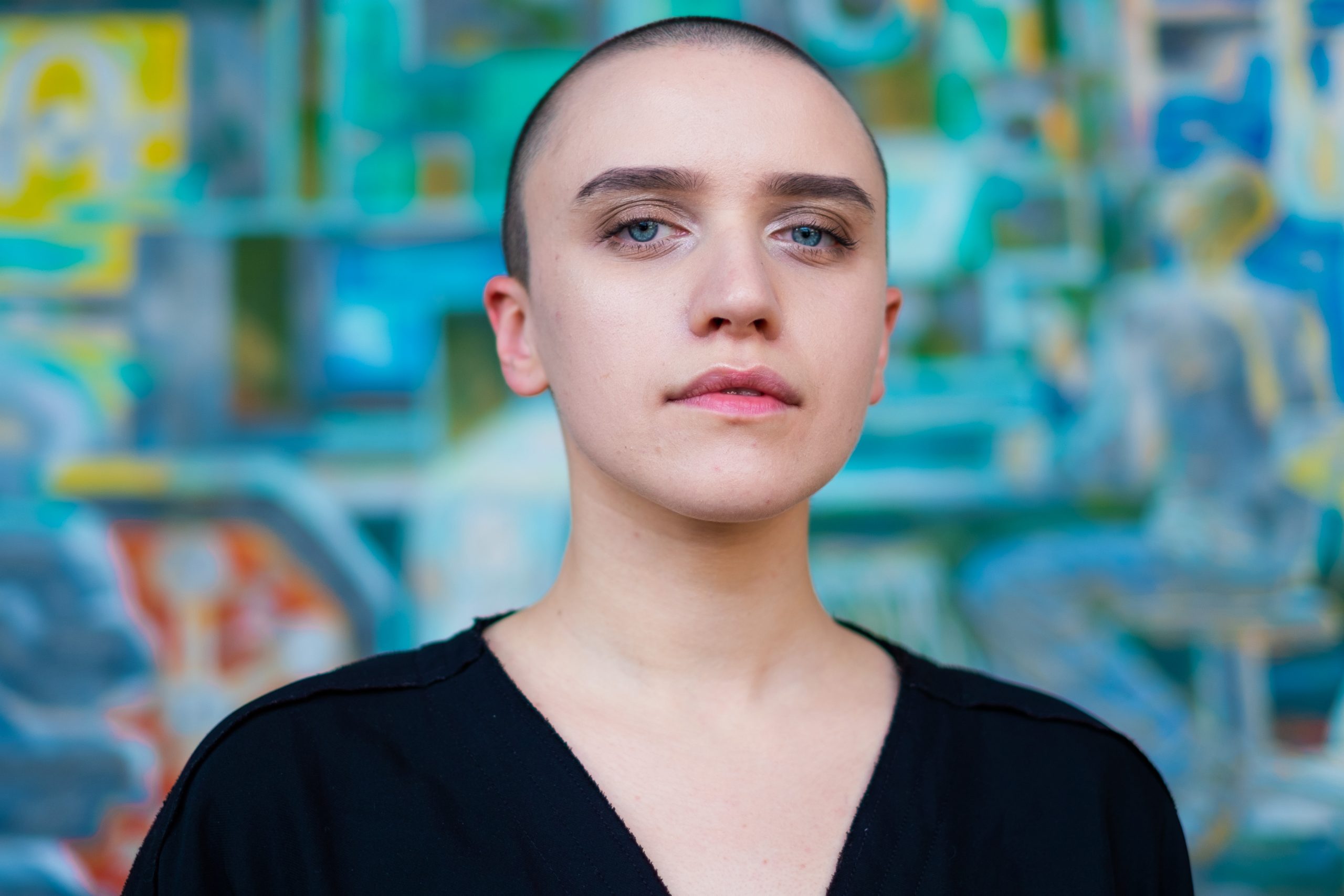United in Courage is an ongoing series of interviews conducted and translated by the Feminists of Kyiv team, starting in spring 2023. The series features members of feminist and LGBTQ+ communities serving in the Armed Forces of Ukraine.
We invited the participants to share their lives before the full-scale russian invasion and what motivated them to join the army. We also discussed the different experiences and challenges they face in the Armed Forces, as well as the sources of support that sustain their resilience in the ongoing war.
We are publishing this interview with Oksana a year after it was initially recorded. Although she is now a veteran, the value and relevance of her experience as a trans woman in the Armed Forces of Ukraine only continue to grow over time.
It is extremely important for Feminists of Kyiv to document the stories of women and LGBTQ+ individuals, especially civil activists, involved in this war, whether as active duty soldiers, veterans or volunteers. We encourage you to support us in this effort.
Interviewer, editor, translator: Bozhena Makovska
Visual artist: Michael Tulsky
In the Ukrainian LGBTQ+ movement, I am known as Oksana Surchok. My passport contains different information, but this is temporary. I was born in Makiivka, Donetsk region, 40 years ago. Since 2014, when the first war started, I have lived in Kyiv. When the full-scale war began, I didn’t have the chance to complete my gender transition. I had a surgery scheduled for March 2022. But there was no choice; I made the decision to join the Armed Forces of Ukraine instantly. I volunteered on the first day of the full-scale invasion. Currently, I hold the rank of sergeant and serve as a fire support operator. For the first two months, we had training, and after that, I consistently engaged in combat missions. Since the summer of 2022, I have been deployed in the Bakhmut direction.
Ukraine is my Motherland, my home, my soil, my culture. Ukraine is the land of freedom. The alternative to this, the so-called ‘russian world’, is slavery, chaos, and arbitrariness by those in power, where instead of law, there are only ‘perceptions’ and the whims of the rulers. I know very well what can be expected from this ‘peace’; that’s why I’m here. No one else will stand up for my family except me.
In terms of family, I only have my partner left. She is also a trans woman, like me, and we have been together for almost ten years. She is very supportive of me and my choice to serve. Without her support, it would be very difficult for me. War steals humanity; it steals the soul. Perhaps, thanks to my partner, I am still alive. I have someone to live for.
Legally, we are strangers to each other in Ukraine. Of course, I support the draft law on civil partnerships. This is a vital task for the Ukrainian LGBTQ+ community right now. The state must give us some guarantees, at least. Without the law, we cannot solve our issues, both financial and non-financial. And I’m not talking only about the military, but about all people in general. In fact, there is discrimination, which, in my opinion, stems from the ‘soviet legacy’ that we have inherited.
I have been involved in activism since 2014. The Tema civil initiative was created to simplify the procedure for gender recognition in Ukraine. And we have achieved this. Owing to the efforts of individual activists and their cooperation with medical workers, the situation has changed for the better. For example, the centralised commission has been eliminated. It is no longer compulsory to undergo a psychiatric examination or gender confirmation surgery (which not everyone desires or can afford).
The legalisation of civil partnerships is only one of the issues we need to address. There is also the problem of adoption because some trans people cannot have their own children due to hormone therapy or surgery. We need to address the issue of assisted reproductive technologies. We have already attempted to propose a draft resolution for public discussion, but then the Council of Churches and other ‘religious fanatics’ sent letters to the Ministry of Health, stating that it would harm children. In my opinion, children are most harmed by families where they are not loved, where a child does not know what love and care truly means. Society is changing, but at a very slow pace.
When I joined the Armed Forces, I did not lie but provided false information. When I passed the military medical commission, I did not tell the psychiatrist that I had a diagnosis of F64.0, according to the 10th edition of the ICD (11th edition has not yet been adopted in Ukraine). At that time, no one paid much attention to individuals, because the enemy was already standing near Kyiv. I don’t really talk about being transgender in the army. Some people in my company know, some don’t. Those who know are silent. Those who don’t know don’t need to know. I don’t see any point in coming out. I came here to defend my homeland, not to promote my identity. I have excellent relations with my brothers-in-arms because I earned my authority in battles and through mutual aid.
The army is hard work. You have to constantly carry stuff on your back. When on a mission, you observe. You are being shot at. It can be very tough. Sometimes, it makes you lose your mind, especially when your comrades die. The last major losses in my unit were in February; we lost eleven guys in one day. I had a crisis then; I was out of it for almost a week. And to be honest, I barely survived that time myself. Bakhmut is a bitch, pardon me.
I saw a lot of things that are better left unseen. But I don’t like to talk about specific battles or situations at the front. I can discuss it in my circle, where everyone is a combatant and knows each other. Civilians don’t need to know about it. I can say that I have seen atrocities committed by russians. I heard on the radio how they executed our military, executed civilians. They don’t encrypt it, and I can hear everything. Then you conduct reconnaissance, and it is confirmed. Everything my grandfather told me about the nazis is in the russians. He fought, just like me. Everyone in my family was fighting, one way or another, including women. My grandmother was a liaison for the UPA. How could you not stand up to defend your home when the enemy came to kill you, rape you, and take away your property?
If you’re going to war, you have to be ready to die at any moment. I cannot say that I lived a good life. I didn’t manage to do everything I had planned. But if I had the opportunity to live my life again, in more comfortable conditions, I would still go to this war. If not me, then who?
War is a universal tragedy. It brings grief not only to our people. If the aggressor is not stopped now, the war will gain momentum and spread to other territories. The russians have already tasted blood. If they defeat us, it will be very difficult to stop them in Europe.
We need help because, whatever one may say, we do not have enough ammo of our own. A lot of things are promised, but for some reason I don’t see a wall of artillery fire from our side that we can follow. Modern warfare is manoeuvrable. Today they took our position, and tomorrow we went to retake it and took their position. This is a common situation. However, we are not yet able to break through their defence.
It is also important to prepare the ground for demobilisation, and this is something that activists could do. I can tell you from my own experience that PTSD is overwhelming. My physical health is also severely affected. When you’ve been at war for a year, you’re constantly wearing a bulletproof vest weighing 13 kg. And if you add a weapon, it can be 30-40 kg. My spine is crumbling. All those who survived my call-up have been wounded, and not just once. There are recorded injuries, and there are situations when we don’t even seek treatment because the combat situation doesn’t allow for it. Last autumn, we held the line for three months, literally living in our positions. It was only when the russians broke through the position behind us and began to encircle us that the commander took us out. And he paid for it with his health.
There is an image of Ukrainian warriors as brave, courageous, and unbreakable defenders — and this is true. However, we also face physical and moral deterioration. Nowadays, there is a category of soldiers called ‘temporarily unfit’. Wounded or sick, they can’t do anything, yet they cannot go home either. This needs to be changed. The military medical commission system also needs to be reformed as it simply doesn’t work. The gap between the military and civilians is deepening. I feel that I have much more in common with those around me who experience all the horrors of this war. And I don’t see civil society actively doing anything for our readaptation.
Of course, I think about the future; it’s not like I’m going to fight all my life. I was forced to join the army. If it weren’t for the war, I wouldn’t have come close to joining it. Yes, it is a necessary mechanism. But the army is very difficult to reform; it’s still very much a part of the soviet tradition. Moreover, the army is very restrictive, which is not my thing. Some progress has been made, but primarily at the company level. If it is a combat unit, then the main thing here is brothers and sisters-in-arms, not statutory requirements. Each company is like a distinct organism. However, if you look at the higher ranks, everything is very sad. This is my perspective as a civilian who remains a civilian even at war.
In the future, I am attracted to a peaceful life. Freedom. Freedom of choice, freedom of movement. The ability not to wake up to the commander’s words ‘breakthrough’ and ‘go ahead, close it’. Because it’s a matter of luck whether you survive or not. When you enter a position, it’s terrifying. Everything that can be fired at you is flying in your direction. Walking to the same position, a kilometre or two, is no easy stroll. Everything trembles inside. When you step in, it’s easier; there’s a trench, and you’re covered. And if there’s a battle, there are no thoughts, no doubts at all. I only think about getting one more… It’s not good. I see that I am becoming addicted to war, to the intense sensations. Overcoming this will take time.
Today, there hasn’t been a single shot fired. Usually at this time, a tank on the other side starts operating, searching for artillery in the fields. The ‘hail’ starts, and you can hear the 120 mm rounds being fired. But today there is a strange silence, and it scares me.
‘I mentioned that there was silence at the front. An hour after our conversation, a fragment of shrapnel hit my car. Silence at the front is not a good sign‘ — a message we received from Oksana after the interview.



